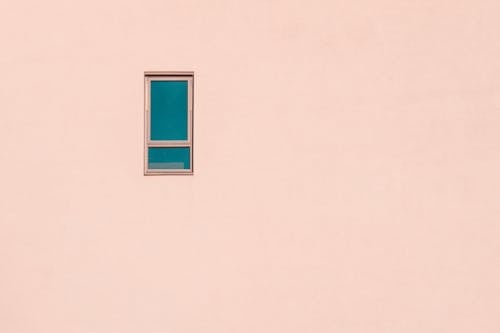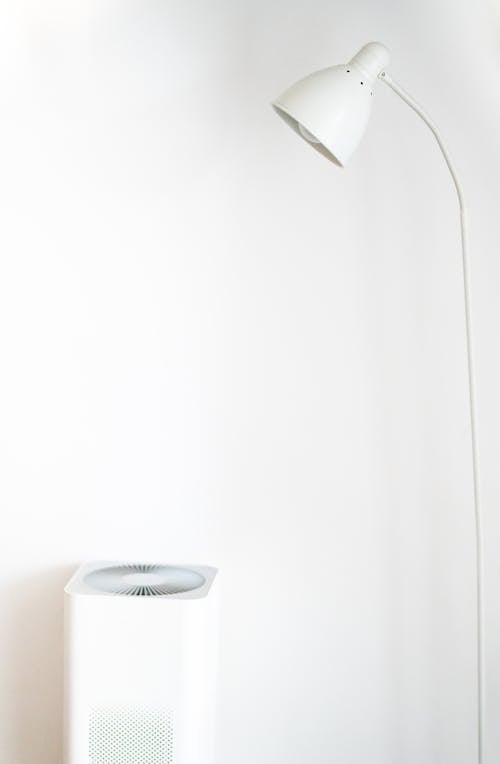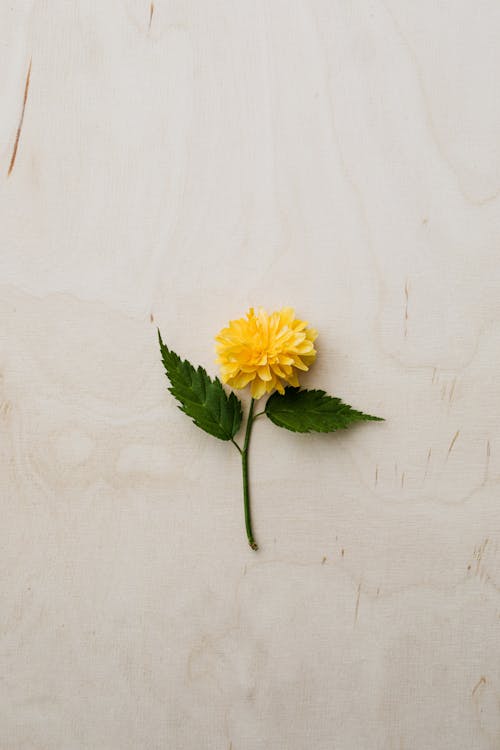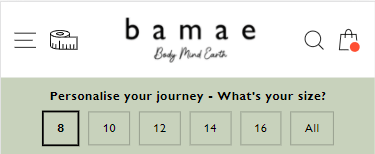Minimalism is a post-WWII art movement, that has also embodied music, literature and architecture, largely characterised by pared-back, essential elements. However, a different interpretation of the term has found popular circulation. Now, many are seeing minimalism as a lifestyle choice, rather than an artistic endeavour – although they seem to be taking as much inspiration from Apple’s sleek designs and Ikea’s vision of pristine living spaces, as any strand of philosophy.

We also have Marie Kondo, Japanese declutter guru, to thank for skyrocketing its recent Western interest with her international bestsellers, which instruct to ditch any item that does not ‘spark joy’ (elements of the philosophy apparently draw from the Shinto religion). Then, there is the wave of minimalist bloggers and vloggers with their MacBooks, sterile living environments, monochrome t-shirts and soft-spoken manner. They tell us about their crises, their mental breakdowns, and how minimalism ushered in a newfound simplicity to their lives, a balm to stress and an antidote to the chronic need of keeping up with those bumptious Joneses.
I will be the first to admit I have been less than enthusiastic about this lifestyle, if not its core principles which are quite sound. To me, a home needs a bit of chaos, energy, dynamics in its composition to give it life. I’m no slob, but I feel slightly naked whenever I enter a completely bare and sanitised living space. Think of it this way: would you like to live in a town or city that was just row after row of identical buildings, stripped of all character? I don’t think so, even if this made it more practical to navigate (which it wouldn’t).

Still, there is a universal logic for getting rid of things. Rare is the person who doesn’t have more stuff than they reasonably need (or can be content with). Consumerism is the most notorious and pervasive of religions, conjuring a fantasy of contentment in every useless bit of tat it sells. We like to convince ourselves we can see through it, or that we are getting a ‘good deal’, but we can’t, and we don’t. To riff on a key tenet of Buddhism: the ‘good deal’ is when we don’t want anything.
Minimalism, however, has perhaps become its own sort of religion. Though many have embraced it because of the aesthetic, and the audacious promise of freedom from the anchors of modern life, it undeniably harbours some practical benefits.
Still, the lifestyle is not prescriptive, and can involve a number of different approaches. Some common characteristics are:
- Owning fewer possessions; mainly keeping the things that you use regularly or are meaningful. Buying less non-essential items.
- Having a tidy, well-organised living space; storing things intuitively.
- Simplifying the structure of your day; removing stress where possible.
- Finding a good work/life balance.
Considering these, there are several benefits to minimalism.
For one, it aligns with our need to reduce consumption and waste in tackling the climate crisis. Though it is the burning of fossil fuels, deforestation and impact of agricultural industries that are primarily to blame for man-made Co2 production in the atmosphere, reducing our use of plastics and other non-biodegradable materials is a relatively easy lifestyle change to make, and one with a potentially sizable impact. Many products we use incur significant carbon costs by being made, and transported from manufacturing powerhouses such as China which are attractive to western suppliers due to low labour costs. Suffice to say we make a mockery of our climate pledges as long asPlastics, of course, are made from oils, and involve the burning of fossil fuels in their production, so they will be problematic regardless of where they are made. We are led to believe that recycling, and substituting single-use items such as straws can offset this, but unfortunately this isn’t the case. Plastics can only be recycled a limited number of times, and do not prevent new plastics being produced on a mass scale.

Reducing our demand for frivolous items, buying fewer, and long-lasting reusable items and stretching the utility out of what we already have, however, is good way to combat this. Minimalism does not require us to make impossible lifestyle changes, but to be more conscious about several areas of our lifestyles. It unsurprising that many minimalists are also vegetarians and vegans for ethical reasons.
Though industrial change will be difficult to enact without dramatic policy changes, we shouldn’t underestimate the psychological power of movements such as minimalism in changing people’s habits. I don’t think minimalism can be misconstrued as anything but an individual pursuit (it does not explicitly ‘make the world better’), but this shouldn’t be a mark against it; if reducing their carbon footprint makes people feel good about themselves, then they are likely to commit to it.
Perhaps feeling good about ourselves is its own means to an end, though. Many minimalists describe the positive knock-on effect of the lifestyle on their mental health, productivity and relationships. As depression, mania and other mental afflictions can result in chaotic living spaces, stripping them back can provide a sense of agency and accomplishment. Parents might tell their children they cannot do X until they have cleaned their room, logic that equally applies to adults living independently: there’s many things they don’t realise they have been inhibited from doing, until they clear their living space.
A clear benefit to minimalist living spaces is that they naturally require less maintenance and cleaning. In a broader sense they may also help us itemise and prioritise the most important aspects of our lives; slow down, live more comfortably and more contently with what we have.
Meanwhile, ‘Digital Minimalism’ is the latest buzzword denoting a more healthy relationship with our devices, where we reduce our usage of them and focus on their essential utilities. This is vital in reconfiguring the structure of our lives, as it is more than the appearance of our living spaces that influence how we feel, and what we think.

From a fiscal standpoint, buying less certainly eases the pressure a little bit – at least among those with disposable incomes. I’m wary that this trend is popular, maybe not exclusively, but at least very vocally, with the middle-class: those with steady jobs, luxury possessions and elegant living arrangements. This ‘MacBook Minimalism’ is far removed from, for instance, the catholic tradition of the vow of poverty, or other frugal living practices which would actually involve living in an uncomfortable way.
Westerners have largely rejected the spiritual imperative behind frugality, seeing instead as a way to ‘win’ against the market and their overlords. For the privileged, this is almost a political choice – for many others it is their default state, the philosophy they have been brought up with for their own survival.
This is to say I can understand why some may laugh at the minimalist aesthetic, just as they may laugh at the ‘gap year girl’ who flies to Borneo to save the orangutans, or the Starbucks socialists. Still, it could be argued that the contemporary philosophy of minimalism is not a short-lived trend, but an indicator of a greater sea-change in response to what many, young people especially, feel is anAs with the original art movement, minimalism does not just have to be the reduction of things, rather, the forging of something bold and new. Ironically, getting rid of things is, in a sense, embedded in the core philosophy of consumerism: dump your old junk so you won’t feel so bad about buying more. If we are to seize the true spirit of minimalism, and its benefits, we must go further than rolling our socks up and stacking them vertically. Instead, we should be thinking about how we can live according to our most basic needs, while, where possible, meeting the needs of a fragile world.




